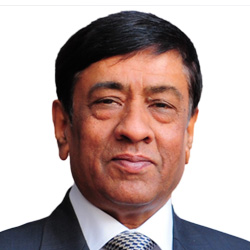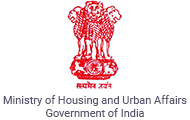Smart Cities
18th - 19th January 2018 • HICC, Hyderabad, India
Smart City
Future lens: Innovative solutions in urban spaces.
The concept of a 'Smart City' – the systematic integration of ICT and technology into cities – a route to citizens centric with better quality services and a more sustainable living environment. Smart Cities are a part of the broader transition towards Digital Economy.
Speakers

Trimble
USA

Reality Modeling, Bentley Systems
The Netherlands

Glasgow City Council

City of Helsinki
Finland

Leica Geosystems
Switzerland

McKinsey
India

Smart City Council
India

Pune Smart City
India

City Futures Research Centre
Australia

Open Geospatial Consortium (OGC)
USA

Esri India
India

City of Rotterdam
The Netherlands

MapMyIndia
India

RIEGL
Austria

Chairman - Global Smart Grid Federation
India

AAM India
India

Oracle
India

Kolkata Municipal Corporation
India

3-GIS
USA

IIC Technologies
India

Ordnance Survey International
UAE

Urthecast - Deimos Imaging
India

Planning and Territorial Development Division
Los Lagos Regional Government, Chile

Vinoothna Architecture and Appropriate Ventures
India

Airbus Defence & Space
Singapore

CyberTech
India

Beijing Space View Technology
China

Institute of Statistical and Geographic Information (IIEG)
Mexico

SITECO Informatica srl
Italy

Research Professor and Professor Emeritus
University of Stuttgart
Germany

Hexagon Geospatial
India

IGI
Germany

ONSDI, National Centre for Statistics & Information
Oman
The Geospatial Framework
Geography is central to most smart cities solutions. Geospatial has become an enabler across the smart city sub system - right from the way energy efficiency is monitored to asset monitoring, sustainable urban planning, intelligent routing and transportation services in real-time location data. A centralized information system based on GIS provides an IT framework, which integrates every aspect of smart city processes – starting from conceptualization, planning and development to maintenance.
The theme 'Geospatial & ICT enabling smart cities', the two-day program will feature experts from urban/city planning, engineers/consultants, mobility and transportation experts, technology providers and research/academic institutes to brainstorm on the opportunities, challenges and scope for developing a truly smart city through integration of ICT and geospatial technologies.

Smart City Implementation Challenges
The main challenge of building a smart city is to improve efficiency of services to citizens by using technology, to improve quality of life.
- Anticipating people's expectations and demands
- Coordination among multiple stakeholders in cities
- Building better delivery systems
- Developing urban life management such as urban planning –residential, commercial areas; building smart infrastructure facilities - power, drinking water, drainage, waste management, etc.
- Scoping an ideal combination of institutional building and delivery mechanisms
Themes to be discussed
Today, numerous new technologies are emerging. They have the potential to disrupt the status quo and improve the way people live. Technologies like IoT, artificial intelligence, 3D printing, robotics and drones, blockchain, sharing economy, gamification are emerging as a revolutionary tool, as transformational as the Internet itself. This is giving rise to smart solutions and social innovations. The above-mentioned theme will discuss how this disruptive technology and other innovations can transform a city's services.
Smart city is not about creation of new cities. It is about bringing smartness in the existing cities by introducing new elements. Innovative solutions to existing challenges will have to be adopted and practiced by the citizens to have any chance of success. The solutions will not necessarily be thrust on the people but it has to emerge from them. They have to own the solutions, only then it will succeed. But for this to happen, adequate emphasis has to be given on the R&D to ensure that the solution is environmentally sustainable too, apart from being economically viable.
The session will discuss opportunities of collaboration, connection between various entities involved in the initiative (government, enterprise, academia, and policy makers) for co-developing and co-learning innovative services and to grow smart city capability.
City authorities has been aggressively pushing for innovative e-Governance to provide greater efficiency, community leadership, mobile working and continuous improvement to citizen services. The session will focus on how ICT and geospatial technologies are enabling smart governance, including facility and asset management, urban cleanliness & waste management, environmental monitoring, public works approval, housing and building permits, etc.
Conservation and restoration of natural assets, as well as development of green infrastructure assets are critical part in creating a sustainable city. The integration of BIM, Geospatial technology, and ICT provides an ideal platform to achieve better coordination and control on the overall project that goes beyond just its completion. The theme will highlight how geospatial technology contributes in sustainable development of cities, with special focus on integration with smart technology like BIM to reduce cost and accelerate delivery time.
The hallmark of any smart city comprises of aspects that include – an integrated water management, solid waste management, smart electricity, most importantly, smart utilities. The entire utility infrastructure asset lifecycle management could benefit from smart technologies, whether in planning, design, build, operate, monitor or maintenance phase. The session will deliberate and will strive to bring out successful cases on developing smart utility services through the right support of geospatial technologies.
One of the biggest challenges of a smart city is to have an efficient transportation system. Considering that the whole idea behind smart transportation revolves around providing a congestion free, rapid commute experience for the citizens, it is important to note that The concept of smart transportation goes beyond vehicles as it puts equal emphasis on pedestrians and bicyclists. In addition to these, there are also concepts like Smart Traffic Signals, Smart Transport Cards, Smart Parking, Smart Toll, etc., that forms a backbone of an effective smart transport system. The following session will focus on the above-mentioned pointers from a smart city perspective.
Public security is a growing problem for cities worldwide. Integration of geospatial information and smart technologies can support police and emergency responders with new tools to fight crime and make cities safer. Safe city theme, alongside state-of-the-art innovation in enhancing public security will be presented.
A city is a city only when it is populated. Similarly, a smart city is one, which enables its citizens to live in a smart environment. Any smart city will have to be based on the idea that people are not just beneficiaries but are also active participants to all activities. Thus, the smart city will have to find out ways of engaging its population through effective flow of information. This way, people directly work with each other rather than being silent observers. This is the essence of a smart city.
Scope

Interchange of ideas on Smart City development among the Government Agencies, AEC Experts, Transportation Experts, Experts from – Energy, Water and Waste Management along with Leaders from the ICT and Geospatial Industry;

Advocate for the adoption of an integrated Geospatial and BIM module supported by complementing ICT solutions for smart infrastructure construction/development for future smart cities;

Discussion on state-of-the-art technology with respect to the various important areas of smart city infrastructure – Transportation, Energy, Water, Waste Management, and various other Citizen-Centric services;
Learn. Experience. Network
Hear from visionary leaders and connect with over 50+ speakers from across the globe to discuss future visions, goals, and challenges to make cities smarter and more sustainable.
Explore the latest Smart City projects and technologies
Unrivalled and interactive presentations
Build partnerships for your city projects
Form valuable links with key decision makers
Learn of funding opportunities
Acquire knowledge on future trends and development
Target Audience
- Experts from key individual pillars of Smart City including as planning, infrastructure, transportation, safety, utilities
- Heads of urban local bodies
- Smart city thought leaders and experts
- City authorities
- City & town planners
- Infrastructure developers (Public/ Private)
- Consultants
- Engineering firms
- Funding agencies
- Geospatial technology experts
- IT Solutions providers/Smart technology experts
- Policy makers
- Project executing agencies
- Academic & research bodies





